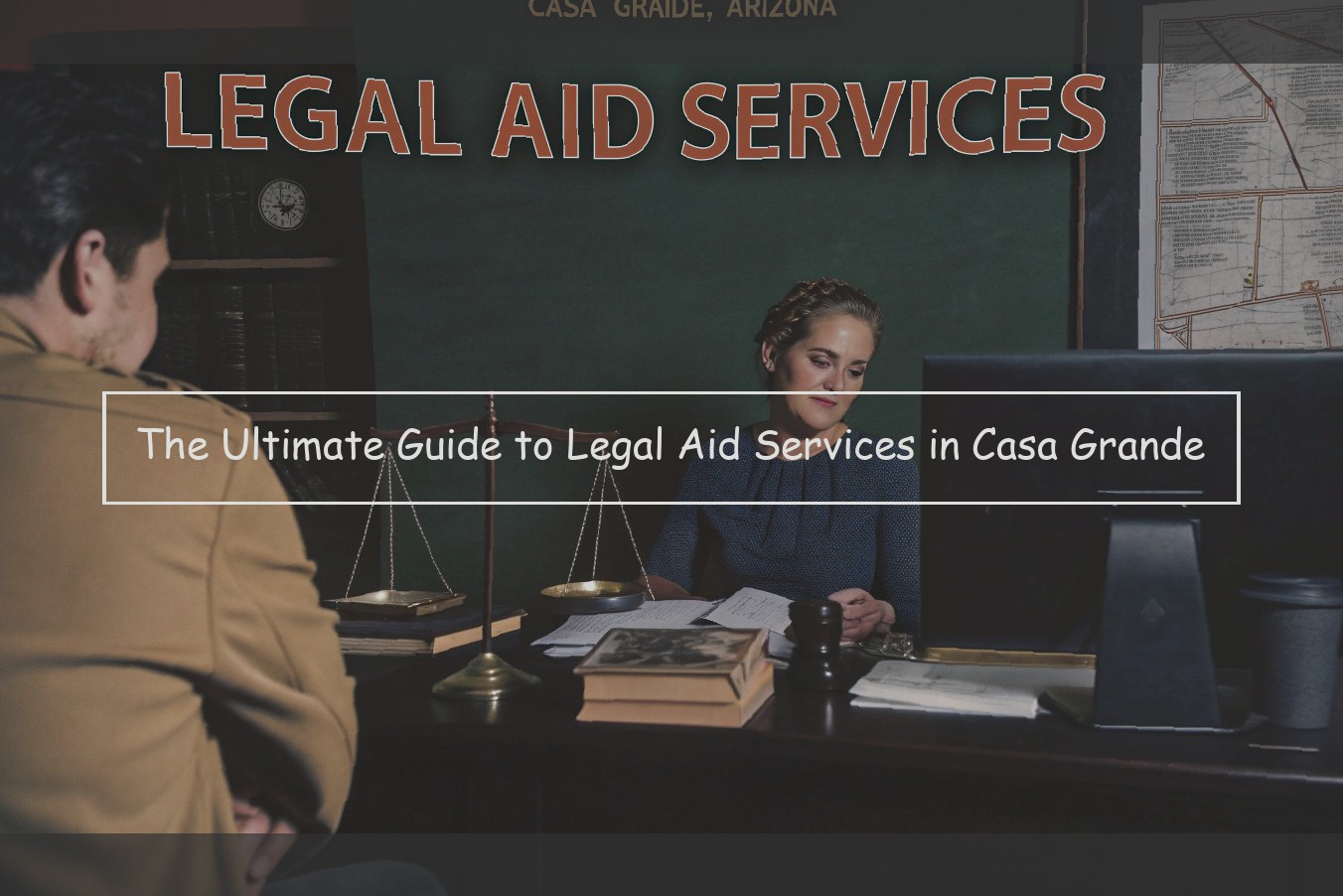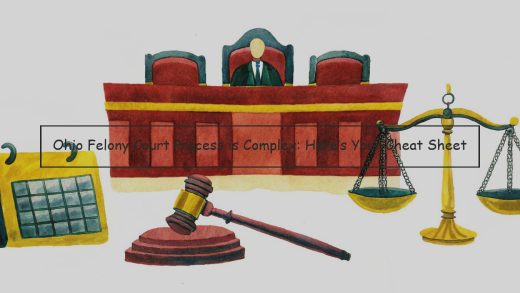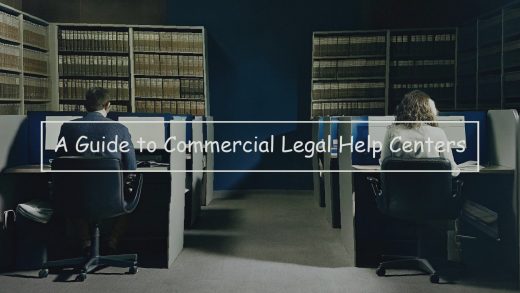
Legal Aid Explained
Legal aid is a term that refers to any method of providing legal services and assistance to people that is not paid for by a client. These programs, which are often funded by government grants or non-profit organizations, are made available to assist low-income individuals who are in need of legal counsel in order to pursue their claims. Given the extraordinarily complicated nature of modern law , it is often impossible for laypeople or those without access to legal counsel to fight their case without assistance. Legal aid reduces the impact of this imbalance of power by providing assistance to those who may not otherwise be able to afford it.
Receiving legal aid when you have a claim to pursue can drastically alter the outcome, so it is important to be aware of your options. For the residents of Casa Grande, Arizona, there are several legal aid programs available to help you obtain compensation for your injuries. The websites of the local legal aid clinics give more information about any specific requirements for receiving legal assistance, such as proving financial hardship or qualification as a resident of Arizona.
Who Can Get Legal Aid in Casa Grande
Eligibility for legal aid assistance is typically determined by income and family size. In Casa Grande, residents may be eligible for free legal services if they live with an income at or below 150% of the federal poverty level (FPL). For example, a single-person household can earn up to $19,320 per year, while those in a four-person household can earn up to $38,600 per year. Further adjustments to the FPL account for family size, health insurance, and whether household members have a disability.
While some legal aid offices may use their discretion in serving low-income families over others living a few hundred dollars above the threshold, legal aid currently serves only those living at or below 150% of the FPL to maximize available aid to lower-income families in need of immediate support. A sliding scale payment plan is available for those earning above 150% of the FPL.
In addition to meeting the income limitations and household size for legal aid assistance, those eligible must also be US citizens or lawful residents for a minimum of five years. As with all other requirements, exceptions may be made at the discretion of CASA Office administrators.
The Casa Grande CASA also offers a helpline, which provides out-of-state residents access to a 24/7 service line capable of directing callers to local legal aid offices where they can receive service.
Different Types of Legal Aid Services in Casa Grande
Legal aid services in Casa Grande, Arizona, cover a broad range of practice areas for low-income people who cannot afford an attorney. The Neighborhood Legal Clinics have been in operation since 1972. Working with various legal organizations, they serve clients at several locations. The majority of services are free.
Applicants typically receive help with family law issues such as divorce, child custody, guardianship, parent-child mediation, parenting time enforcement, modification of legal decision-making (formerly known as custody), and in some cases adoption. Since the staff and volunteer attorneys help people and not businesses, corporate law is not offered.
While cases in these areas of law must demonstrate a need for a free lawyer, exceptions exist. For example, they can help with divorce if it involves domestic violence, mental illness, substance abuse, child abuse, or a medical disability. In the case of adoption, they provide services where termination of parental rights is not required. They also help with substantive legal decision-making disputes that need to be resolved between parents or former partners.
Legal clinics help with civil legal disputes involving landlords and tenants. With this service, the staff member takes on the role of a mini-Miranda warning to ensure that a person understands the following:
Each case is different, but as part of the service, they prepare pleadings or letters for each client, and represent them in court. While attendance at court is required, the staff provides the client with a legal guide. They walk the client through a court visit to observe procedures and offer one-on-one assistance. Legal aid services may also collect documents and other information about the case from the client.
Many people have financial problems, so legal aid services can also help with consumer protection issues. They represent clients with fair debt collection, debt collection lawsuits, repossession, and wage garnishments. In many cases, they advocate for the client against the creditor.
Legal aid also represents clients in debt settlement cases for creditors who do not require a contract to hire their services. In these cases, the lawyer offers one-time services to prepare pleadings or pleadings and court appearances if the court allows it. The majority of the legal aid services are offered through volunteer attorneys, who in many cases will sign up to represent the client in court.
How to Access Legal Aid in Casa Grande
Residents of Casa Grande can access legal aid services from local legal aid offices, nonprofits, and online resources. Most of these resources are free of charge or offered at very low cost. Pro bono assistance may also be available through local bar associations.
The Arizona Legal Services Locator is an excellent resource for finding legal aid organizations in the area. Terminal Center – A warm, welcoming space that is designed for people experiencing homelessness who need to access services. Available Monday – Thursday from 9 am to 5 pm – 490 N. Broadway, Suite E. Financial Assistance – Financial emergency funds are available for rent and utilities. Deposits for housing, utilities and childcare costs are also available. Preventing eviction and paying for short-term housing is also offered.
Online Resources – The U.S. Department of Justice provides a searchable database of free legal aid groups. This database provides information for each state and breaks down legal aid groups by legal focus area.
Clearinghouse is an online chat service with legal professionals. The system is available Monday through Friday between noon and 11 p.m. CST.
Terminal Center – A warm, welcoming space that is designed for people experiencing homelessness who need to access services. Available Monday – Thursday from 9 am to 5 pm – 490 N. Broadway, Suite E.
Legal Assistance – Legal Aid of Arizona provides free legal assistance to qualifying individuals. Services are strictly limited to: child custody, domestic violence, divorce, guardianship, landlord/tenant issues, bankruptcy, foreclosure, employment discrimination, tax disputes, food stamps and public assistance, foreclosures, landlord/tenant and utility shutoffs, consumer debt, garnishment, and more.
Online Resources – The U.S. Department of Justice provides a searchable database of free legal aid groups. This database provides information for each state and breaks down legal aid groups by legal focus area.
Applying for Legal Aid
In order to receive legal aid services from one of the aforementioned organizations in Casa Grande, applicants must adhere to their specific application process. Fortunately, each organization makes the application process a fairly simple task.
Generally, the first step to apply for legal aid is to go to the local legal aid society. Upon arrival, applicants will be asked to fill out a legal aid application form. If the form is not readily available, ask an employee for assistance with it. Employees are typically happy to help applicants with the application process as they want to make sure as many people as possible get the assistance they need. The next step in the application process includes a brief conversation between a legal aid representative and the applicant. At this point, the applicant should be prepared to answer questions about his or her current financial situation. The applicant will also be questioned about what type of legal aid services he or she feels that they may require (e.g. family, bankruptcy, housing, etc.). Based on the information that the applicant provides during this conversation , the legal aid representative will determine if there are grounds to offer him or her services.
If deemed eligible, it is up to the legal aid provider to ultimately decide if they will take the applicant’s case. Once this process is completed, the applicant will be contacted by the legal aid organization to discuss the next steps in providing him or her with legal services. Although it can be difficult to get the attention of a legal aid attorney (and subsequently receive services) when compared to hiring a private attorney, Casa Grande residents are fortunate to have several legal aid options at their disposal.
When applying for legal aid, consider these important tips: 1. Always arrive promptly to your appointment. 2. Make it to your appointment with all required documents. During the timing of writing, this typically includes a photo ID and social security card. However, the legal aid society you work with may have additional document requirements. 3. All legal aid services are free. There are no fees associated with these services, meaning that you should never be asked for money during the application or service process. If you ever are, know that you are not working with a legal aid organization.
Legal Aid: Pros and Cons
Legal aid services play a crucial role in providing individuals with access to justice in Casa Grande. The advantages of legal aid services include affordability, personalized attention, and a fundamental right to legal representation. Legal aid attorneys work hard to level the playing field and ensure that clients get high-quality assistance for their legal issues.
Legal aid services are affordable and allow low-income individuals to access the justice system when they may not otherwise be able to afford an attorney. For many who qualify for legal aid services, attorney fees are waived, making important legal help accessible. This can be especially important in cases where a violation of rights has occurred, such as a serious family law issue or civil rights case. Legal aid attorneys take the time to listen to clients’ concerns, investigate the details of their case, offer advice, and provide much-needed representation in court.
Since most legal aid programs are not funded with public dollars, they have more flexibility when it comes to the types of legal cases they can take on. Legal aid services do not have to focus solely on work in the courtroom to help individuals achieve greater justice in Casa Grande. By assisting with routine legal matters, legal aid services can help reduce the number of cases that go to court and help clients avoid unnecessary litigation. Common matters handled by legal aid attorneys include landlord/tenant relations and bankruptcy.
Even though legal aid programs strive to help those in need, there are some limitations that those seeking legal aid in Casa Grande should be aware of. For example, legal aid programs usually limit the types of legal matters they handle as well as the type of clients they accept. Most legal aid attorneys and nonprofits will not take criminal cases, unless it is an advocacy case designed to improve the criminal justice system as a whole or those defending a wrongfully accused person. Additionally, legal aid services can only take on a limited number of clients each month. In many cases, the clients served will have to meet income and asset requirements in order to qualify to receive legal aid services. Unfortunately, this means that there may be individuals who are in critical legal situations that are unable to receive assistance from a legal aid attorney.
Legal Aid Success Stories in Casa Grande
Every story shared by a legal aid client is a success story. Legal aid has turned around lives in the Casa Grande community, and a few of these stories are too powerful not to share.
Veronica found herself recently with a job and kids to care for, but without a way to get to work. She has a suspended license due to past offenses. Veronica contacted Community Legal Services (CLS) and was referred to community advocate, Charles Thornton. Working in partnership with the City of Casa Grande, CLS was able to take steps to reinstate Veronica’s license, allowing Veronica to drive legally again and take her children to school every day. Vicki is both a mother, and the primary caretaker for her elderly mother. She has a good job, but doesn’t make a lot of money. She paid what she could afford to pay in child support, but when her income decreased, her ex-husband took her to court. He was awarded more of her paycheck than she could afford. To correct the overpayment, Vicki filed a motion with the court to reduce the child support she owed. She contacted CLS and was referred to community advocate Sande Miller, who prepared the motion and represented Vicki in court . Because of Miller’s efforts, the court agreed to give Vicki a break on her child support. She will only have to pay $25 a month moving forward, rather than the $200 she was required to pay before. David worked for a small company and was initially paid a salary without any overtime. When his paycheck changed to an hourly wage, he realized he had been underpaid for hours he had worked. When he discovered the wage theft, he contacted CLS, who helped him file a claim to recover wages owed. In September 2018, CLS settled the claim for $2,125, which was double the amount originally owed to David. Like anyone, Stacey has made her share of mistakes. But she’s been working hard to set things in order for her family and herself. The first step was to repair her credit by paying off her debt. The second step was to get her driver’s license restored after years of no driving privileges. She went to the City of Casa Grande and they worked with her to connect with CLS for help. Through CLS, she was able to get her license back – a huge relief for Stacey, and a lesson for her children that we can all recover from bad decisions.



